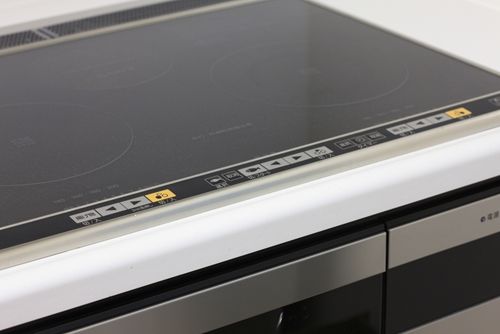Gas Versus Electric Stoves: Weighing the Pros and Cons
September 7, 2016
Are you a lover of tradition or do you feel yourself drawn to something more modern? While kitchen decor has long been the focus of this debate, this extends even further, to the way that your stove generates heat.
For stoves, there are two main choices when it comes to heat: electric or gas. Electric stoves run off your home's grid, while gas stoves have to be tapped into a supply of either propane or natural gas. When designing a new kitchen, various elements may dictate if you are able to opt for gas stoves, such as existing natural gas or propane hookup in the house, or whether you have space for a propane tank. But assuming you can get a gas stove, should you? Below is a guide to the pros and cons of the different types of ranged stoves:
Electric Ranges
Pros:
- Electric ranges are often much easier to clean than gas stoves. Some electric ranges are simply a smooth-top, flat glass plane, able to be wiped down by a sponge or rag after use.
- Smooth top electric ranges are flatter and more stable, able to support the weight of full pots and saucepans without needing to precariously balance them. This can be a great advantage for amateur or young cooks.
- Electric stoves can be manufactured in a variety of shapes and sizes, and are able to be installed virtually anywhere, so long as there is an electrical outlet.
- Electric ranges activate with the push of a button and distribute heat evenly across the entire surface, no need to worry about defective igniters or clogged fuel lines. The heat of an electric stove is also more precise, and is able to dial in to a specific temperature much easier and more accurately.
Cons:
- Electric stoves cost, on average, slightly more than gas stoves.
- Electric stoves take longer to heat up to full temperature than gas stoves.
- Since they rely on power, during a blackout, your stove will be rendered unusable.
- The glass range on top is less durable than a cast iron gas counterpart. The glass is also more likely to stain.
Gas Ranges
Pros:
- Gas stoves are less expensive than electric stoves to operate, anywhere between 10 and 30 percent less on average according to Bob Villa. Both propane and natural gas cost less than the equivalent amount of electricity.
- Gas ranges heat up quickly, reaching the temperature you are looking for soon after ignition.
- Food cooks faster and evenly when exposed to an open flame. You can also char and toast food with a gas stove, which cannot be done with electric.
Cons:
- Because you are dealing with open flames, gas stoves can be more dangerous and more likely to cause fires. The gas component of the stove can also leak and is toxic if left to build up.
- Gas stove ranges can be hard to clean.
- Because gas gives off moisture, roasting – which requires dry heat – can be difficult to do with accuracy.
- While the stove itself may be less pricey than an electric alternative, the hookups required for gas stoves can make it a more expensive installation. Combined with the need to buy or rent your own propane tank and have it regularly serviced and refueled, this can add up over time.
There's no right answer as to what the perfect stove will be, so simply go with something that matches what you need and your budget. Need some inspiration? Stop by a Wolseley Kitchen and Bath showroom today and we can help.

